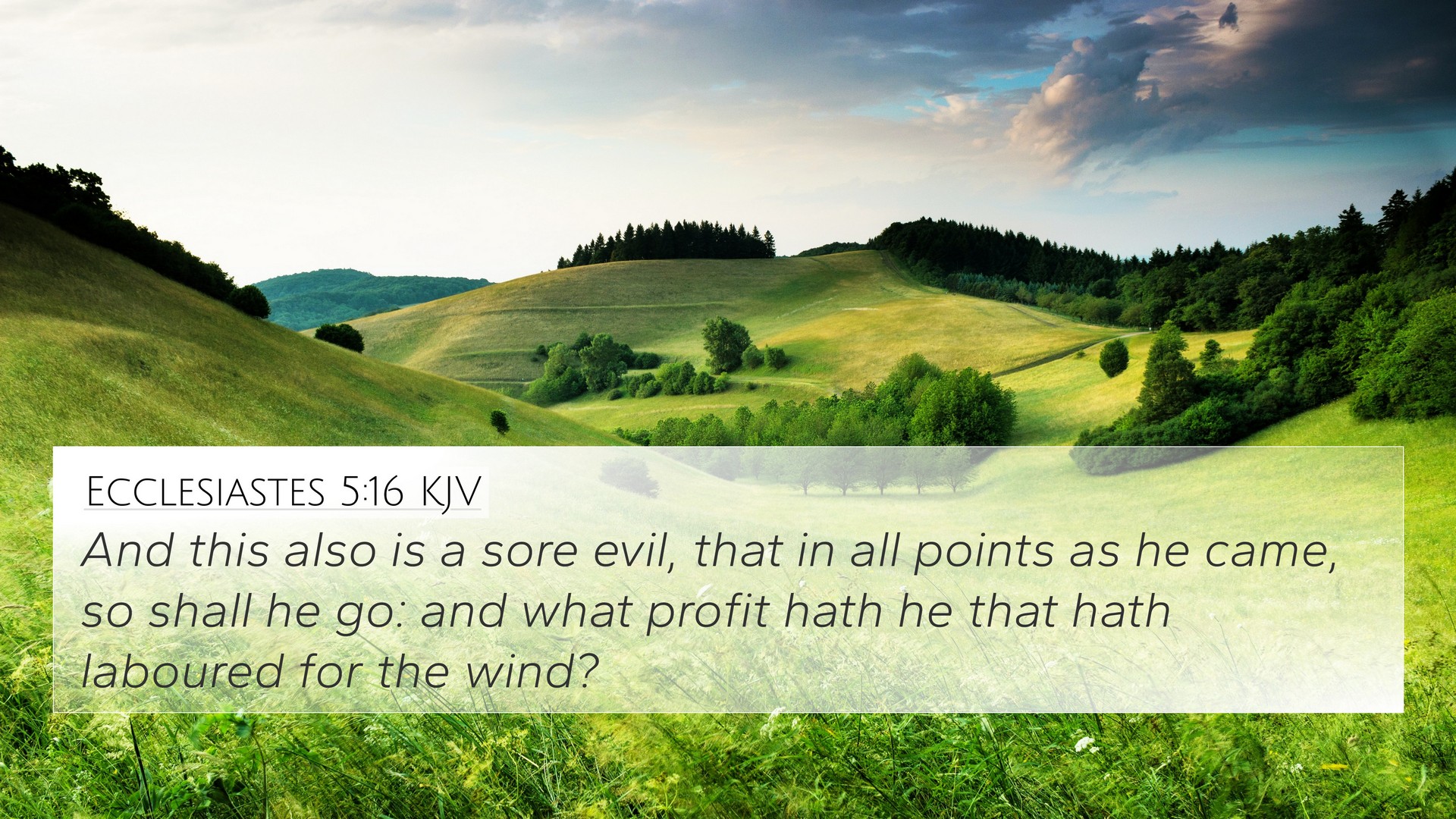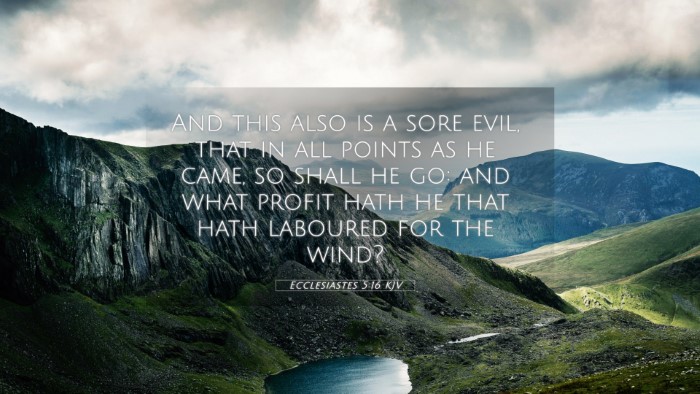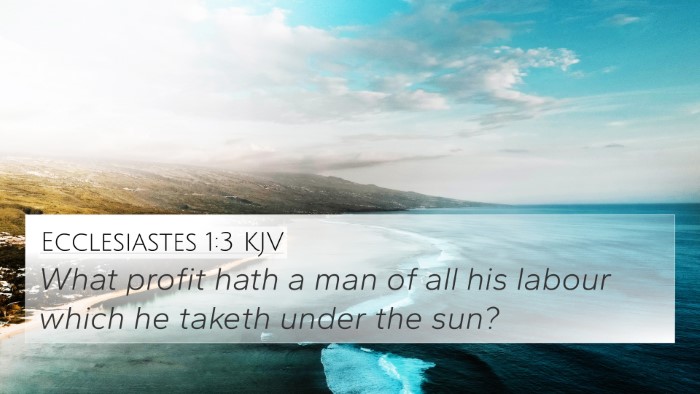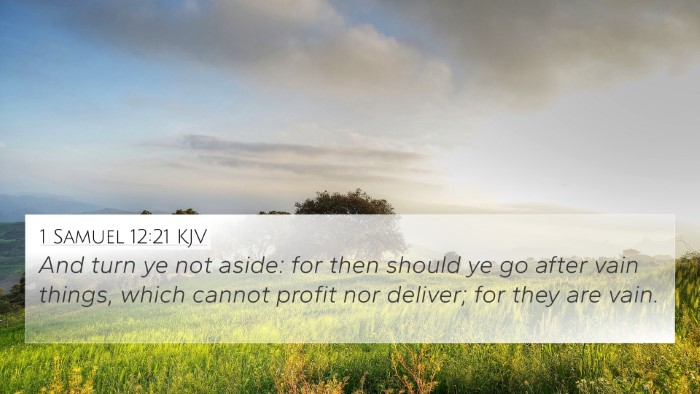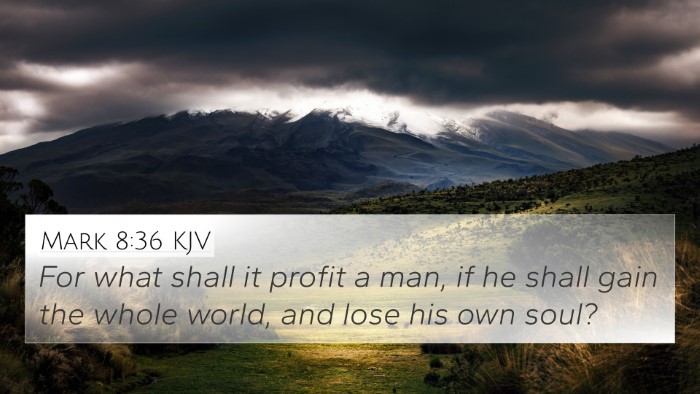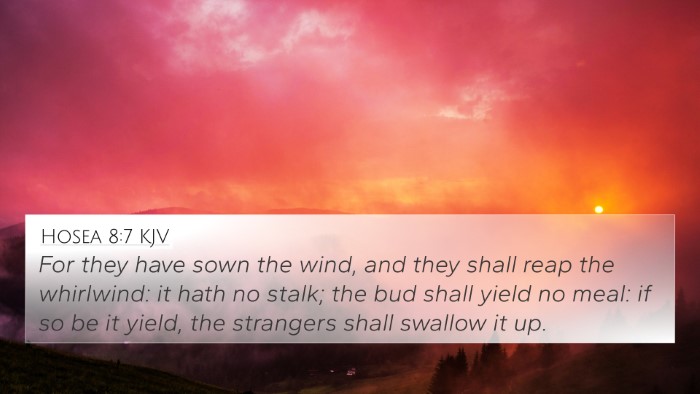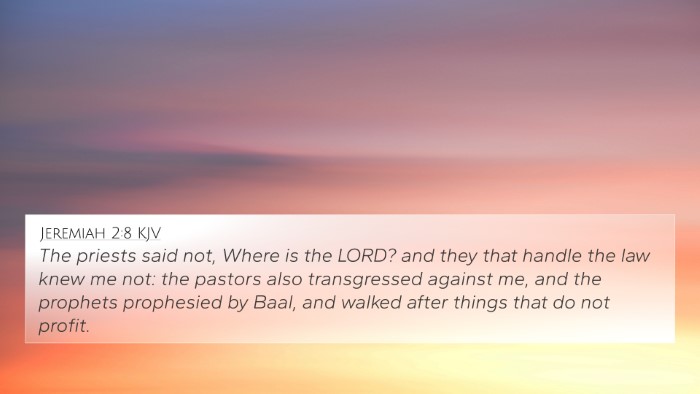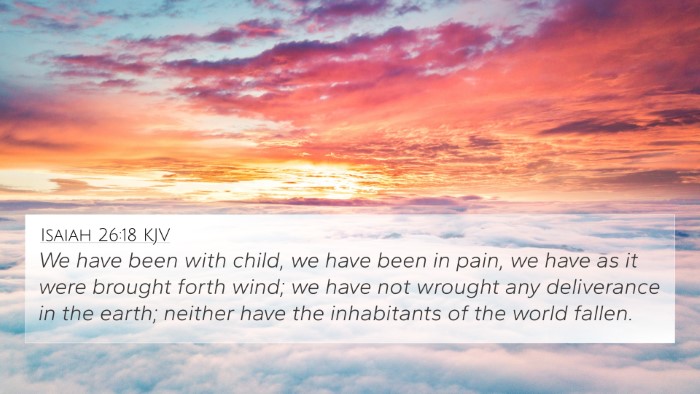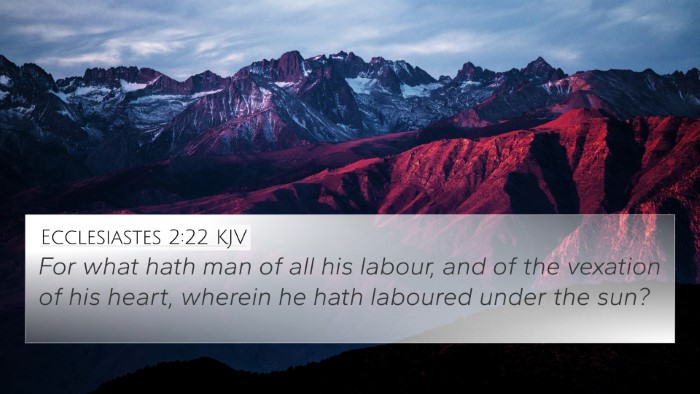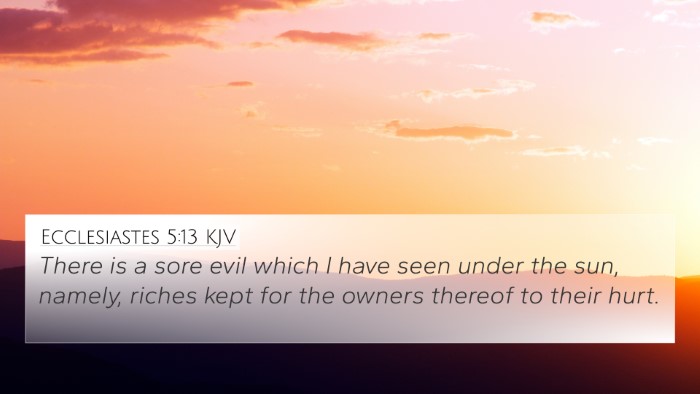Understanding Ecclesiastes 5:16
Ecclesiastes 5:16 states: "And this also is a grievous evil, that in all points as he came, so shall he go: and what profit hath he that hath labored for the wind?" This verse presents a profound reflection on the fleeting nature of human labor and the inevitable reality of death.
Summary of the Verse
The author expresses the futility of striving for material gains, which ultimately cannot be taken beyond the grave. The verse encapsulates the existential notion that life is transient, and one’s efforts may not yield lasting benefits.
Insights from Public Domain Commentaries
Matthew Henry's Commentary
Henry emphasizes the sorrowful truth that death is the great equalizer—everyone must face it regardless of their achievements. He posits that all human efforts should ultimately serve a greater purpose beyond personal gain. Henry encourages readers to find true satisfaction and contentment in their relationship with God, rather than in the ephemeral rewards of worldly endeavors.
Albert Barnes' Notes
Barnes highlights the contrast between earthly labor and spiritual fulfillment. He argues that chasing after material wealth, likened to “the wind,” results in emptiness. Instead of seeking profits in material gain, Barnes suggests focusing on spiritual treasures that endure beyond this life. He also connects this idea to the broader themes of Ecclesiastes regarding the vanity of life.
Adam Clarke's Commentary
Clarke delves into the philosophical implications of the verse. He refers to the inevitability of death and how it renders earthly pursuits meaningless. Clarke’s insights encourage contemplation of what constitutes true value in life, suggesting a shift from merely temporal achievements to eternal rewards.
Cross-Referencing Ecclesiastes 5:16
- Psalm 39:6: "Surely every man walketh in a vain show: surely they are disquieted in vain: he heapeth up riches, and knoweth not who shall gather them." This verse shares the theme of the futility of accumulating wealth.
- Job 14:1-2: "Man that is born of a woman is of few days, and full of trouble. He cometh forth like a flower, and is cut down: he fleeth also as a shadow, and continueth not." This passage reflects life's brevity.
- 1 Timothy 6:7: "For we brought nothing into this world, and it is certain we can carry nothing out." This New Testament verse aligns with the theme of leaving behind earthly possessions.
- Luke 12:15: "And he said unto them, Take heed, and beware of covetousness: for a man's life consisteth not in the abundance of the things which he possesseth." This verse cautions against greed and materialism.
- Ecclesiastes 2:11: "Then I looked on all the works that my hands had wrought, and on the labour that I had laboured to do: and, behold, all was vanity and vexation of spirit." This earlier verse mirrors the sentiments of Ecclesiastes 5:16.
- Proverbs 23:4-5: "Labour not to be rich: cease from your own wisdom. Wilt thou set thine eyes upon that which is not? for riches certainly make themselves wings; they fly away as an eagle toward heaven." This emphasizes the fleeting nature of wealth.
- Matthew 6:19-21: "Lay not up for yourselves treasures upon earth, where moth and rust doth corrupt, and where thieves break through and steal. But lay up for yourselves treasures in heaven..." Here, Jesus contrasts earthly and heavenly treasures.
Thematic Connections with Other Bible Verses
Cross-referencing Ecclesiastes 5:16 with other verses reveals a strong biblical theme regarding the emptiness of earthly pursuits versus the value of spiritual riches. Such cross-referencing provides a comprehensive understanding of biblical teachings:
- The futility of wealth (Psalm 39:6 and Ecclesiastes 2:11)
- The brevity of life (Job 14:1-2)
- Warnings against materialism (Luke 12:15 and Proverbs 23:4-5)
- Storing up treasures in heaven (Matthew 6:19-21)
- The danger of covetousness (1 Timothy 6:7)
Understanding Through Comparison
When performing a comparative Bible verse analysis, one can identify how the wisdom literature, summed up in Ecclesiastes, resonates with teachings found in the Gospels and Epistles. This inter-Biblical dialogue encourages believers to continually reflect on the transient nature of life and the importance of prioritizing spiritual over material wealth.
Conclusion
Ecclesiastes 5:16 serves as a powerful reminder of the limitations of human endeavor in the face of mortality. By utilizing tools for Bible cross-referencing, readers can uncover the vast interconnections in Scripture, enriching their understanding of biblical themes and the divine perspective on wealth and fulfillment.
Additional Resources for Bible Study
Engaging in Bible cross-reference study can reveal deeper insights into the scriptures. Resources such as Bible concordances, cross-reference guides, and comprehensive Bible reference materials can greatly enhance one's study experience. These tools aid in identifying connections between various passages, ultimately broadening the understanding of the comprehensive biblical narrative.
Suggested Tools:
- Bible Concordance
- Cross-Reference Bible Study Guides
- Interlinear Bibles
- Bible Chain References
- Digital Bible Study Tools
